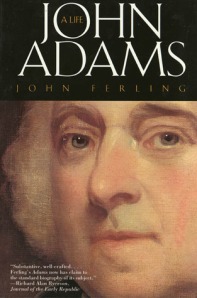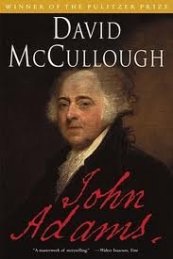 Vitals!
Vitals!
Name: John Adams AKA His Rotundity
Lifespain: October 30th, 1735 (?) or October 19th, 1735 (?) – July 4th, 1826. (Again, Julian Calendar people complicate everything. Leave it to the British to sort this out… http://www.nationalarchives.gov.uk/palaeography/quick_reference.htm)
Home State: Massachusetts
Served as President: 1797-1801
Vice President: Thomas Jefferson
Spouse: His third cousin Abigail Smith Adams
Historian Rank: 12
Why you may LOVE him….
John Adams is not your flawless, cherry treeing, key in the lightning, rhetorical master the elusive “founding fathers” seem to embody. He was a brash, rude, vain and irritable man passionate about the American cause. Most would take that. Mr. Adams’ life reads like the back of a hall of fame pitcher’s baseball card. He took on the impossible task of defending the British soldiers at the Boston Massacre. After securing a legal victory for the British, Adams was one of the first and most vocal colonists to move toward independence. He turned aside pleas for continued patience and put the colonies full speed ahead toward independence. He then left his family and all he knew to become the most traveled American of his era. What Franklin had on him in years, Adams had in diversity. In an age where men would barely leave their birth town, Adams visited France, Holland, and Great Britain in just a handful of years. He hated slavery, never owned one and wanted it banned in the infant nation. After the war, Adams wrote the Massachusetts Constitution that became the first constitution to be ratified by the people. He is credited with being the loudest and most persistent advocate for checks and balances. He never swooned over the French Revolution as a worldwide crusade for liberty. He was the first Vice President where he was roundly criticized for his insistence on making America as respected as possible (Spoiler Alert: It backfired on “His Rotundity”). Finally as the second President John Adams was a staunch supporter for the “evil” strong military, a strong central government and kept America out of an impossible European War that surely would have snuffed the candle in the cradle. Going to war would have secured his legacy, staying out of it probably cost him his job. One of his final acts as president was appointing John Marshall Chief Justice. Marshall would go on to establish American Judicial Review thus securing a true three branched government. Opt hated, never ignored, John Adams knew he wouldn’t be beloved and at the end of the day he didn’t care. Is that not the rebel we all claim to love?
Why you may HATE him…
John Adams was the most traveled American statesman of his era. He didn’t speak French then tried to lecture the French people. It seems he embarrassed himself and America in the Court of St. James. All of his travels solidified his arrogance. Surely not unlike his contemporaries, Adams did not actually think highly of the so-called common man. His letters are littered with references to the “unwashed” and “unlearned” and he was not shy about limiting access to the federal government. He was never the “high” federalist like his friend (or foe?) Alexander Hamilton but he certainly would have been comfortable in a monarchy. He was a bitter and sore loser, leaving DC at 4 AM rather than see Jefferson sworn in as Washington had so gracefully done for him. I must be forgetting something… Oh yes! He jailed, imprisoned and convicted political dissenters. No president before and since has so openly rounded up and targeted political opponents like John Adams. What Nixon may have done behind closed doors, Adams did through the Alien and Sedition Acts. He certainly was no advocate for liberty as he made criminal the act of critical journalism, public opposition and simply being a foreigner. Some many argue that he did what he had to do with a European War looming, sadly it looks like he was not pushed into the extremity of his views. They seemed to be in line with his thinking all along. He was the condescending and elitist guy that will always be better than you no matter what. Hey Mr. Adams, who decided to make you king?
Final Verdict in Five Words: Overlook at your own peril.



